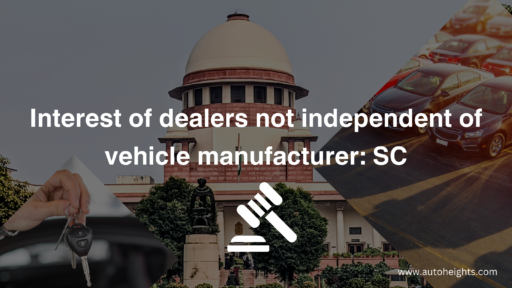
In the corridors of automotive commerce, where promises of performance and efficiency meet consumer expectations, lies a tale of legal complexity that every industry professional must heed. The saga revolves around a seemingly innocuous advertisement, but its repercussions reverberate profoundly, offering invaluable insights into the intricate dynamics between manufacturers, dealers, and consumers.
The narrative unfolds in Dehradun, where a car buyer’s dream of owning a Ford Fiesta (Diesel) collided with the stark reality of a misleading advertisement. The claim of an impressive mileage of 31.4 km/liter, touted in newspapers by Ford India Pvt Ltd, turned out to be a mirage, with actual figures falling short at 15-16 km/liter.
At the epicenter of the dispute stood A B Motors Pvt Ltd, the dealer responsible for the transaction. Initially held jointly liable with the manufacturer by the District Forum, the dealer bore the brunt of a hefty compensation order amounting to Rs 7,43,200, along with additional costs.
However, legal tides turned when Ford India Pvt Ltd launched an appeal, seeking reprieve from the State Commission. While hopes soared momentarily, they were soon dashed as the Commission upheld the dealer’s culpability, affirming the lower court’s decision.
A ray of hope emerged when the National Consumer Disputes Redressal Commission (NCDRC) intervened, granting a revision petition that shifted the burden solely onto the dealer’s shoulders. Yet, the denouement awaited its climax in the chambers of the Supreme Court of India.
In a landmark ruling on October 8,2021 the apex court dissected the temporal incongruities between the advertisement’s publication date and the vehicle purchase, ultimately absolving the dealer of liability. This verdict, while specific to the case, bears broader implications for automotive professionals across the industry.
Insight for Automotive Professionals: Navigating Legal Landmines in Consumer Relations
- Holistic Understanding of Advertising Claims: The Ford Fiesta case underscores the importance of scrutinizing advertising claims meticulously. Automotive professionals must ensure that promotional materials align with factual realities to avoid legal entanglements.
- Interconnectedness of Dealers and Manufacturers: The legal saga highlights the intertwined interests of dealers and manufacturers. Automotive professionals must recognize this symbiotic relationship and collaborate effectively to mitigate risks and uphold consumer trust.
- Navigating Consumer Disputes: As guardians of consumer satisfaction, automotive professionals must navigate consumer disputes with diligence and transparency. Proactive measures, such as clear communication and adherence to legal standards, can prevent escalation and safeguard reputations.
- Legal Precedents and Industry Practices: The Supreme Court’s ruling serves as a precedent, emphasizing the importance of legal compliance and ethical conduct in industry practices. Automotive professionals must stay abreast of legal developments and align their operations accordingly to mitigate legal risks.
The Ford Fiesta dispute serves as a cautionary tale, reminding automotive professionals of the legal minefield that accompanies commercial endeavors. By internalizing its lessons, industry stakeholders can forge a path of integrity, transparency, and legal compliance, fostering trust and resilience in the ever-evolving automotive landscape.
